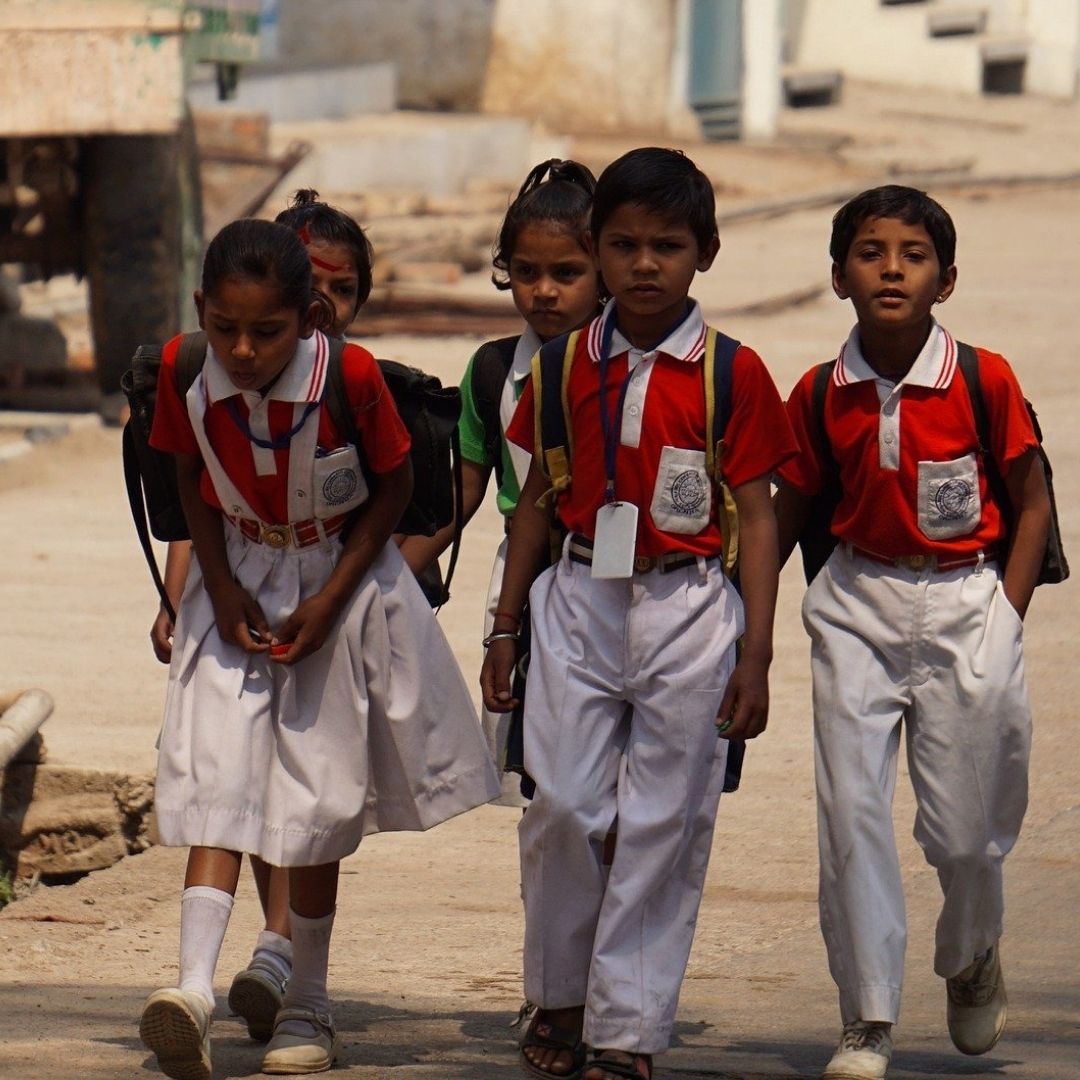
Image Credits: Pixabay
How Frequent School Closures Has Impacted Gender Balance And Mental Health OfChildren?
Writer: Akanksha Saxena
I am a budding journalist who loves to write stories that have the ability to connect with people.
India, 23 Nov 2021 3:00 PM GMT
Editor : Ankita Singh |
A literature lover who likes delving deeper into a wide range of societal issues and expresses her opinions about the same. Keeps looking for best-read recommendations while enjoying her coffee and tea.
Creatives : Akanksha Saxena
I am a budding journalist who loves to write stories that have the ability to connect with people.
The past year saw students resorting to complete digital learning as schools were closed during the pandemic. While this was a good move to fight the deadly virus, it has not been a favourable solution.
COVID-19 has completely transformed our lives. When it knocked at our doors in 2020, no one expected spending so much time in our homes. The computer screen became our office, school and college as everything went digital. Initially, online workspace and classes were enjoyable. However, they became highly monotonous. Juggling them with household chores became a daunting task. We found ourselves working or studying for an extra amount of time, resulting in eventual burnout.
Complaints about workload became the norm. Not just in offices, this was evident in students as well. All of the classes shifted online, which took some time to get used to. The nationwide lockdown resulted in schools being closed for almost a year. While this was necessary to fight the virus, it is not a viable solution. In India, the pandemic is not the only reason behind the closure. As the rest of the country was gearing up to reopen schools, schools in Delhi were shut down due to the deteriorating air quality in the national capital.
In light of this, several organisations studied the impact and published their inferences. The United Nations Educational, Scientific and Cultural Organisation (UNESCO) released a report on the 'gendered effects' of COVID-19 school closure worldwide. Along with this, a report by Lancet looked into the impact on Mental Health.
Adverse Impact On Essential Well-Being
The study by UNESCO is called 'When Schools Shut: Gendered Impacts of COVID-19 School Closures.' Its key findings include 'Access to Remote Learning', 'Return To School' and 'Health, Well-Being and Protection'. According to this, young girls around the world were adversely affected. Their learning time was reduced due to increased household work, looking at the cultural norms about the same. "Girls faced difficulties in engaging in digital remote learning modalities in many contexts because of limited access to internet-enabled devices, lack of digital skills and cultural norms," said the report. For the poorer families, this was the unfortunate reality.
Not just female students, several female teachers had issues as well. Not just juggling with their familial duties, acquainting themselves with the necessary digital skills to impart education online was not easy. Even today, educators struggle to get around the current system due to various problems such as poor internet connectivity and other related issues. Not just cultural norms, disturbing stereotypes affected accessibility as well. The report did an in-depth study in countries like Bangladesh and Pakistan, where boys were given mobile phones for personal use, and girls were not permitted to do so as it would 'corrupt them.
The school dropout rates have seen a rise as well. Many boys from lower economic backgrounds were forced to leave school as they were involved in income-generating activities. Making ends meet became tough during COVID-19. Therefore, many low-income families had to ask their school-going children to leave their education behind. Another reason for dropout is financial constraints. Many children could not go back as the fees became impossible to pay for their families, putting their dreams on the back burner.
Loneliness and Depression
Lockdowns were the only solution to curb the virus menace. While many of us were lucky enough to spend it with our families, some were not so fortunate. However, no public interaction for months on end will harm our mental health. A Lancet report called 'Mental Health Effects of School Closures During COVID-19' stated that children with mental health problems found it difficult to pass the time during the lockdown. "Going to school has been a struggle for some children with depression before the pandemic, but at least they had a routine to stick with," the study quoted a Hong Kong-based psychologist named Zanonia Chiu. With a routine to follow, they had activities they could indulge in and have the necessary support.
Another psychologist from Hong Kong, Chi-Hung Au, inferred that they could become 'frustrated' and 'short-tempered' when their routines are disrupted. The problem aggravates autistic children. In many educational institutes, speech therapy and social skills groups take place. The closure can prove disastrous for them. To make up for the lost progress, Chi-Hung Au suggested that parents make a schedule to avoid anxiety due to uncertainty.
For university students, the issues pertained to their student accommodations and job situation. Students in the final year were concerned about the crippling economic situation around the world. Many struggled to find a job in the placement season that left them uncertain about their future. "College and university students are stressed about dormitory evacuation and cancellation of anticipated events such as exchange studies and graduation ceremonies. Students in their final year are anxious about the job market they are going to enter soon," said the Lancet report.
What Needs To Be Done?
While the inferences result from preliminary research, it paints a bleak picture of the global education scenario. The world is now gearing up to reopen educational institutes. As they prepare themselves to welcome back students, much needs to be done to tackle future uncertainties. Governments need to come together in this. They have to provide necessary financial assistance to schools and colleges around the country. The UNICEF report gave insightful suggestions in this regard. "Develop the capacities of teachers and school administrators to identify better and address the gendered repercussions of school closures on the broader health and well-being of learners," mentioned the report.
In institutes around the world, mental health needs to be given priority. Adequate facilities to promote mental health well-being need to be developed to tackle the overall problem. COVID-19 has emphasised this need all the more. The restrictions to curb the pandemic have not been easy. Therefore, the schools have to model themselves around this to make it a safe space for their students.
A year has passed, and everyone is embracing the new normal.However, this is when everyone around the world has to come together and work towards tackling such a problem in the future. The world needs to be adequately prepared to take such issues head-on, without any collateral damage.
Also Read: 73% Young Indians Believe Education Quality In The Country Has Improved: UNICEF Survey
 All section
All section














